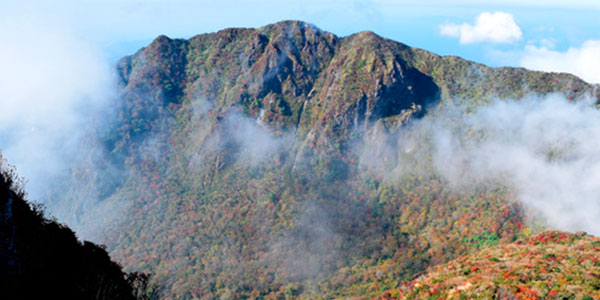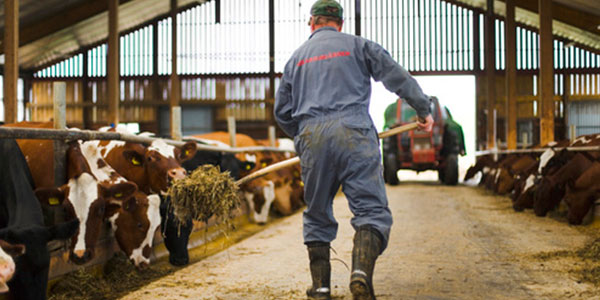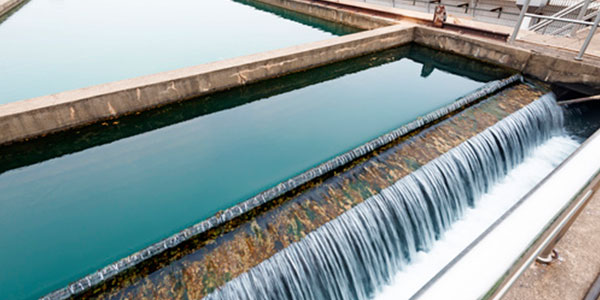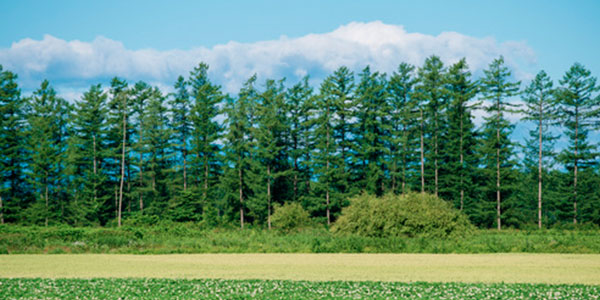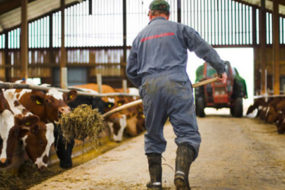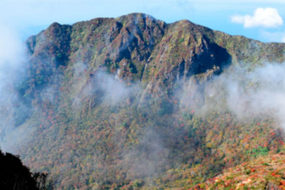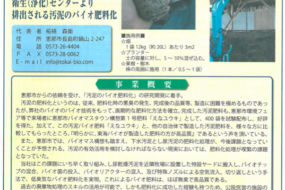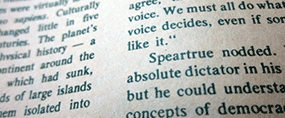About Tokai-Bio
Biotechnology
Tokai Bio’s Effective Microorganisms
AS-2 Bacillus sp
Its viscous agent around the outer cells allows for soil’s water retention characteristics. It also performs proteolysis for livestock manure.
AS-4 Bacillus sp
Efficiently decomposes non-biodegradable, fibrous substance such as lignin, cellulose, pectin, and etc.
AS-16 Bacillus sp
Thermophilic deodorizing bacteria which produce phytohormone such as cytokinin, and also decompose fat.
AS-20 Bacillus sp
Thermophilic bacteria that decompose fibrous elements such as cellulose, hemicellulose, and etc.
AS-32 Bacillus sp
Produce amino acid and vitamins
AS-33 Pseudomonas sp
Decompose fibrous elements such as lignin, cellulose, hemicellulose, glucan, mannan, and etc.
AS-221 Pichia sp
Solubilize insoluble nutrients such as phosphor, iron, magnesium, and etc. by masking aromatic elements like yeast fungus, deodorizing bacteria, and vitamin-forming bacteria
AS-229 Thermoactinomyces sp
Thermophilic bacteria that decompose many non-biodegradable fibrous substance, such as lignin
Business
Publication
1. 1991.01.31
“Wishing to cover Mt. Fuzen and its surroundings with greenery – Construction companies in Ena city develop cow manure bio-fertilizer.” The Yomiuri Shimbun
2. 1991.11.23
“Four points of the compass front line – Agro-soil: ‘Reduce waste’ and the ultimate fertilizer.” The Yomiuri Shimbun
3. 1999.12.09
“Agro-soil completed by ‘composting’ cut trees, leaves, and weeds – Mizunami city applies the biotechnology.” Chunichi Newpaper East Mino Edition
4. 1999.12.28
“Composting weeds with biotechnology – Free distribution to Ena citizens.” Chunichi Newspaper East Mino Comprehensive Edition
5. 2000.02.03
“Make compost from weeds, trees, and waste – Toki city also begins its educational experimentation at a woodchip station with 40 kids in attendance.” Gifu Newspaper East Mino Edition
6. 2000.05.11
“Kids cheerfully gain knowledge by sweating – Use leftover lunch for flowerbed fertilizer.” Chunichi Newspaper
7. 2000.12.02
“Achieving mastery – Contribution to waste reduction and going organic.” The Mainichi.
8. 2001.01.18
“Turning disaster to effective utilization – Driftwood transform into fertilizer.” Gifu Newspaper
9. 2001.02.10
“National Elementary and Middle School Award of Environment and Education – 3 elementary schools in Gifu prefecture receive awards.” Gifu Newspaper
10. 2002.04.21
“Sales Forefront: Our Company Strategy – Successful driftwood fertilization.” Gifu Newspaper
11. 2002.07.18
“Osashima elementary school receives Award of Environment and Education.” The Yomiuri Shimbun
12. 2002.11.27
“Fertilizing wood waste – Biotechnology circulates ecology without burning.” Gifu Newspaper
13. 2005.02.18
“Recycled fertilizer utilized at Flower Festa – Tokai Bio brings 300t of scrap wood mixed with microbes.” Gifu Newspaper
14. 2005.03.16
“Agricultural recovery in Miyake Island with fertilizer from Ena city.” Chunichi Newspaper Gifu Comprehensive Edition
15. 2007.10.19
“Experiment composting chestnut bur – Students at Ena Agricultural High School conduct reclamation study.” Gifu Newspaper
16. 2007.12.01
“Learning organic fertilizer manufacturing – Tour of Tokai Bio.” Gifu Newspaper
17. 2007.12.07
“Interaction with various parts of Shonai River basins – 30 Kiyosu residents visit Tokai Bio for observation.” Tono Shinpo
18. 2008.10.17
“Ena Agricultural High School receives Minister of Edication, Culture, Sports, Science and Technology Award – Ezai receives Minister of Health, Labor and Welfare Award for Distinguished Service of 3R Promotion.” Chunichi Shimbun
19. 2008.10.29
“Minister of Education, Culture, Sports, Science and Technology Award for Ena Agricultural High School – Chestnut bur fertilization highly-evaluated.” Gifu Newspaper
20. 2009.08.07
“Free fertilizer distribution – Fertilizer made with pruned rose branches, cut trees and weeds at Flower Festa Park.” Chunichi Shumbun
21. 2009.09.12
“Environmental technology examples to be presented – International conference from the 14th.” Chunichi Shimbun Tokai Comprehensive Edition
22. 2010.08.04
“Gifu’s Brilliant Small Businesses – Tokai Bio: Fertilizing waste with microorganisms.” Chunichi Shimbun Gifu Comprehensive Edition
23. 2012.06.02
“Tono Area Economy – Composting mowed weeds and felled trees on-site: Ena city’s Tokai Bio.” Chunichi Shimbun Tono Area Comprehensive
24. 2013.10.03
“Transforming park’s branches and leaves into fertilizer – Aiming for disposal cost reduction – Free distribution to Toki residents.” Chunichi Shimbun
25. 2014.03.11
“Free distribution of fertilizer made from branches and leaves to Toki residents.” Chunichi Shimbun
26. 2014.04.05
“Sending 3.5t of composts to elementary school in Ishinomaki – For flowerbed at disaster-stricken area in need of fertilizer.” Chunichi Shimbun
27. 2016.04.23
“Debris disposal during disaster – Ena city signs a treaty with Tokai Bio.” Gifu Newspaper
28. 2016.06.03
“ROOTS Company Origin: Tokai Bio – Bio-fertilizer from waste – Composting made possible without foul odor.” Tono Shinpo
29. 2016.06.21
“Composting and vegetable making from ‘leftovers’ – Ena city’s Misato Elementary School cooperates with local company.” Chunichi Shimbun
30. 2016.06.29
“Nakatsugawa city composts weeds and branches – Tokai Bio distributes compost to citizens for free.” Gifu Newspaper
31. 2016.07.10
“Compositing weeds and branches – Environmental Center applies Tokai Bio’s special technology.” Sanno Newspaper
32. 2016.07.17
“Misato Elementary School cooperates with Tokai Bio and Meitetsu Restaurant for an ‘environmental class.’” Sanno Newspaper



